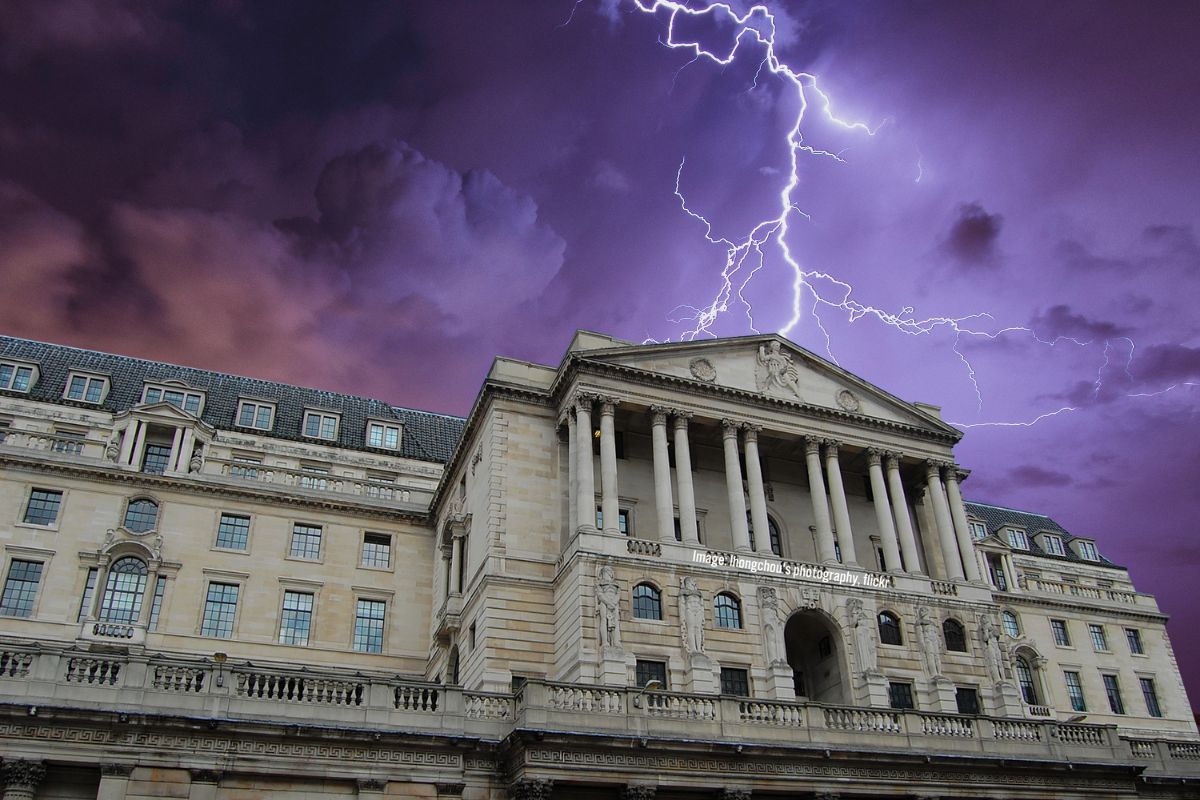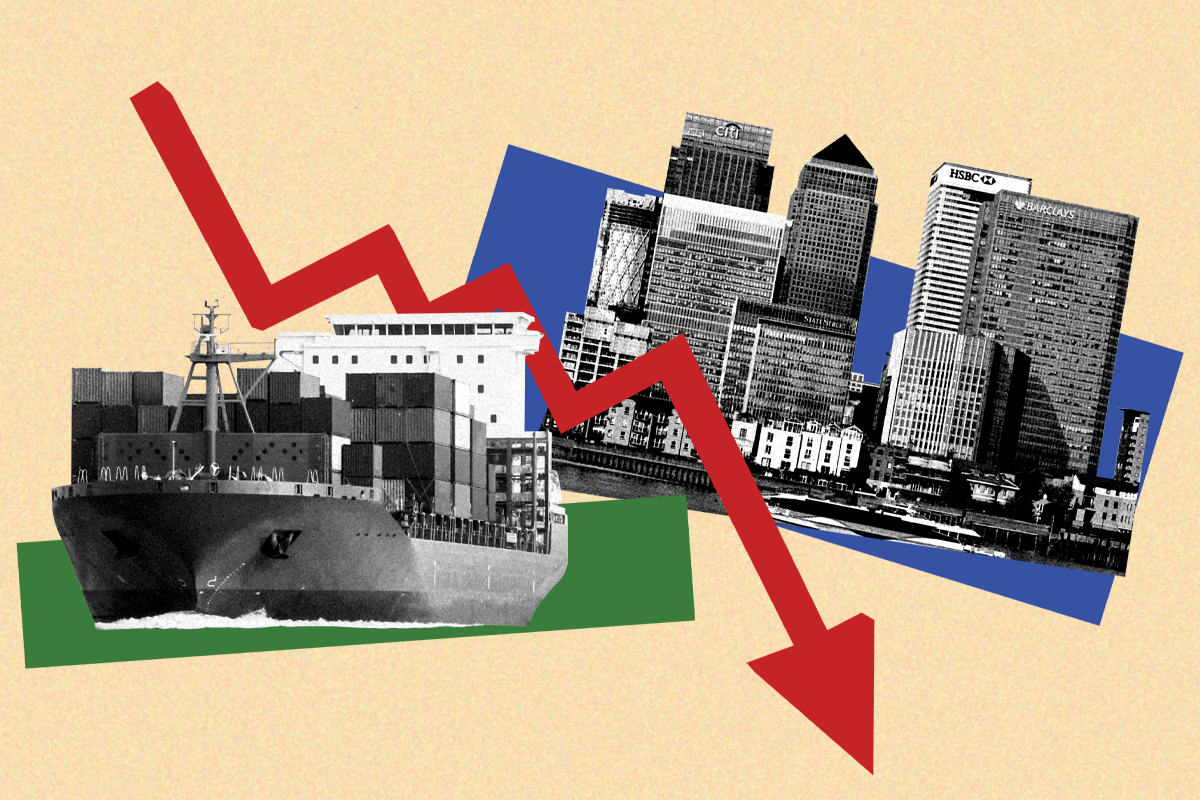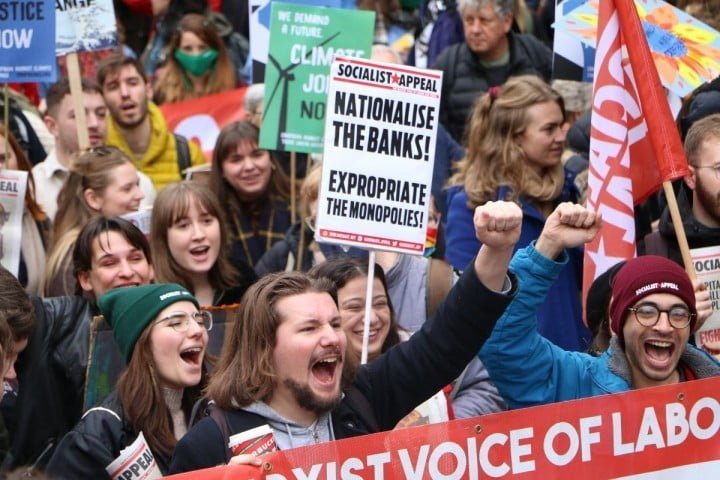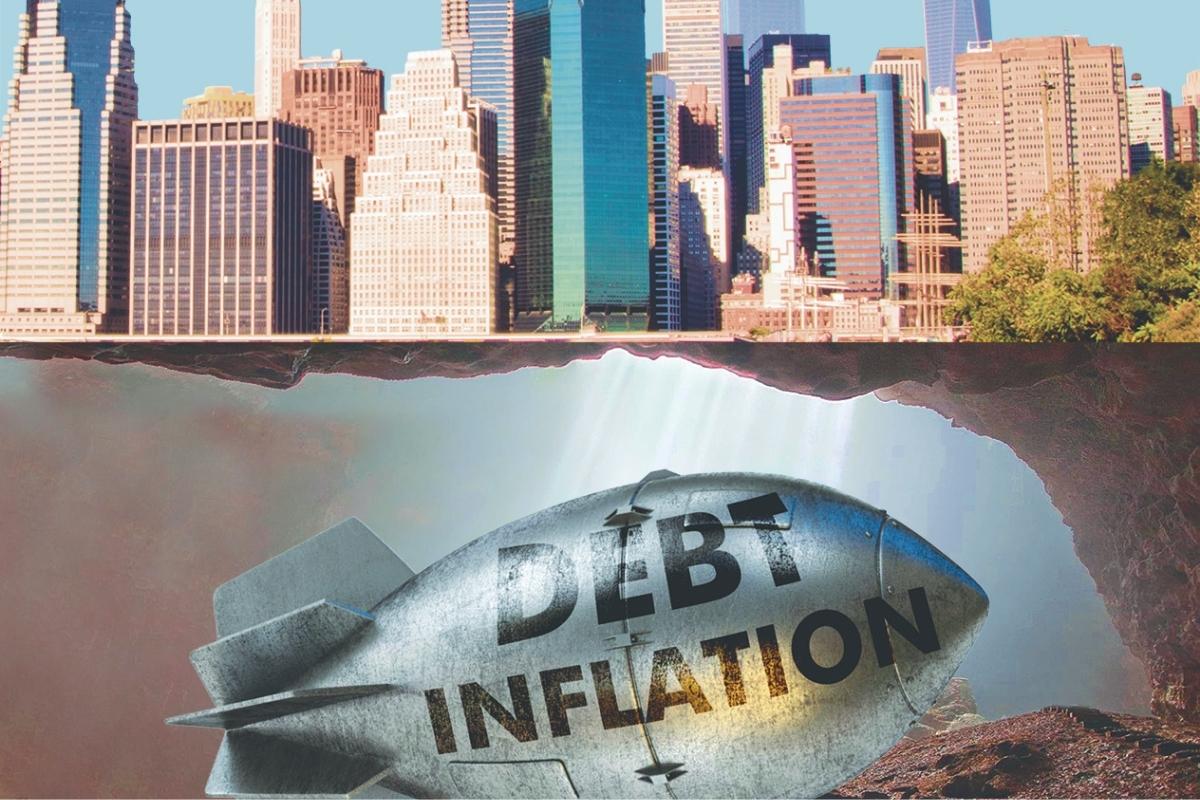The Bank of England today announced another hike in interest rates. With households and businesses loaded up on debt, this threatens to push millions into bankruptcy and unemployment. We say: make the billionaires pay for this crisis!
The short and painful period of Trussonomics is over. But rather than providing any return to stability, Rishi Sunak is warning of a “profound economic crisis”.
And in its latest projections, released today, the Bank of England reiterated this foreboding message, stating that Britain is entering into its longest recession since the 1930s.
Truss’ reckless tenure was not the ultimate cause of the country’s problems. Rather, the hapless former PM served to intensify the turmoil already existing in the UK economy, following decades of decline and years of successive crises.
British capitalism is facing a perfect storm. The beast of inflation, arrogantly thought by the ruling class to be dead, was in fact only sleeping. And now that it has reared its head, central banks across the world are desperately attempting to contain it, by sharply tightening the supply of credit.
The Bank of England (BoE) is no exception. Today, the BoE’s Monetary Policy Committee announced its latest revision to UK interest rates, which are set to increase by 0.75 percentage points to 3%.
This is the highest level since the 2008 crash, and the biggest single rise since 1989. By autumn 2023, meanwhile, interest rates are predicted to peak at over 4.5%.
These forecasts are lower than previous estimates, due to the promises of austerity from Sunak’s government.
Nevertheless, this hike in borrowing costs will still be enough to send shockwaves across an economy that has become addicted to cheap credit and loaded up with debt.
Zombie companies
 For starters, approximately one in five British businesses – more than one million – make just enough profit to service the interest on their borrowings, but too little to pay down their debts.
For starters, approximately one in five British businesses – more than one million – make just enough profit to service the interest on their borrowings, but too little to pay down their debts.
These so-called ‘zombie’ companies are kept alive only by the grace of low interest rates. Under ‘normal’ market conditions, they would be crushed by their costs and competition.
A sharp return to higher interest rates will therefore squeeze large numbers of these firms – particularly smaller businesses – into bankruptcy.
Combined with rising energy prices and falling sales, it is clear that a day of reckoning is fast approaching for indebted UK companies. And this will have disastrous knock-on implications for the wider economy, including rising joblessness and falling wages for workers.
In their latest projections, for example, the BoE estimates that unemployment could rise to 6.4% by the end of 2025 – adding insult to injury for workers who have seen their take-home pay eroded by inflation and rising bills over the last year.
Housing market chaos
The catastrophe facing British businesses is matched by the potential instability in the UK housing market.
In September, sales hit their lowest levels since the height of the pandemic. And with mortgage rates jumping in line with those set by the BoE, house prices are predicted to fall by around 10-15% next year, as homeowners are forced to sell, unable to meet their borrowing costs.
If the latest Tory prime minister lasts until the 2024 general election, his prospects for victory will be damaged by the two million families affected by an average £3,000 increase to their yearly mortgage payments.
These conditions will leave many homeowners trapped. On the one hand, mortgage payments are taking a greater and greater chunk out of their paycheck each month. On the other hand, many will not be able to sell, finding themselves in negative equity, whereby their property’s value drops below the amount owed to the bank.
With British household debt standing at 134% of disposable income, the situation is clearly unsustainable.
Already, at existing interest rates, it is estimated that 475,000 households are likely to experience repayment difficulties, spending more than 70% of take-home pay on mortgage costs, rent, and essentials. And this figure is projected to rise to 800,000 by the end of 2023.
This, in turn, will bite into consumer demand across the rest of the UK economy, exacerbating the protracted recession that has likely already begun.
Balancing the books
 Rather than looking for any help from the government, workers in Britain should expect further attacks.
Rather than looking for any help from the government, workers in Britain should expect further attacks.
The government is faced with a black hole of around £50 billion in its finances. And Rishi Sunak and Jeremy Hunt have made clear their intentions to balance the books through “eye-wateringly difficult decisions” – that is, through brutal cuts and austerity.
On current trends, the government’s deficit for this financial year could reach over £170 billion – far above the £99 billion predicted by the Office for Budget Responsibility back in March.
This will only add to Britain’s mountain of public debt, which now stands at almost 100% of GDP. Meanwhile, with the markets spooked by recent events, and the UK’s financial credibility tarnished, government borrowing costs have risen, increasing the burden of these massive debts.
As a result, analysis by the Institute for Fiscal Studies suggests that servicing costs for the UK’s accumulated debts will now exceed £100 billion per year going forwards: taxpayers’ money that will be lining the pockets of the bankers and investors, rather than paying for much-needed hospitals, schools, and public services.
Devastation ahead
 Taken together, it is clear that there is a ticking time-bomb sitting underneath the UK economy. Households, businesses, and the government are all drowning in debt. And rising interest rates could see thousands – if not millions – of families and companies go under.
Taken together, it is clear that there is a ticking time-bomb sitting underneath the UK economy. Households, businesses, and the government are all drowning in debt. And rising interest rates could see thousands – if not millions – of families and companies go under.
As former US Treasury secretary Larry Summers stated recently, British capitalism increasingly seems “like an emerging market turning itself into a submerging market”.
This is the devastation that lies ahead, in Britain and internationally, as the ruling class attempts to tame inflation by provoking a slump.
At the same time, if central banks don’t act by aggressively raising rates, and governments don’t implement cuts, then prices could spiral out of control; panic on the markets will continue; and chaos will ensue. Under capitalism, all roads lead to ruin.
Make the billionaires pay!
 Either way, the Tories will attempt to foist the bill on the working class. Whether it be through austerity or inflation, it is workers and youth who will shoulder the costs of capitalism’s crises.
Either way, the Tories will attempt to foist the bill on the working class. Whether it be through austerity or inflation, it is workers and youth who will shoulder the costs of capitalism’s crises.
But this assault on living standards is already provoking a fightback. The trade unions have risen from their slumber. And the industrial militancy seen in recent months will only intensify and radicalise as the class struggle sharpens.
Only through socialist planning can we defuse the dynamite of debt in the economy. This means nationalising the big banks and major monopolies, expropriating the super-rich, cancelling the debt, and putting workers’ in control.
This is the bold socialist programme that we must fight for. We say: Kick out the Tories! Kick out capitalism! Make the bosses, bankers, and billionaires pay for this crisis!






